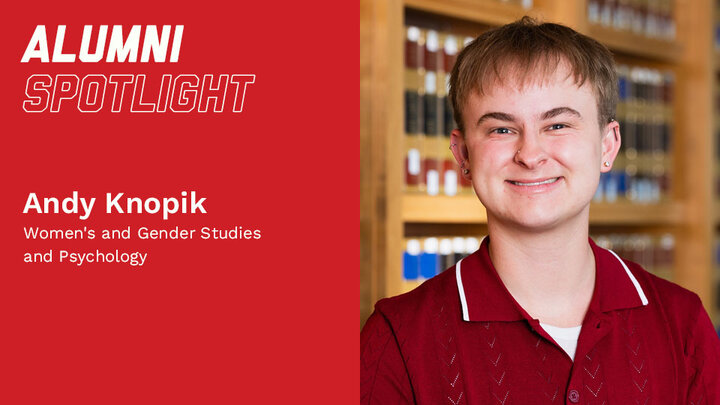Major: Psychology
Hometown: Sioux Falls, South Dakota
Growing up in Sioux Falls, Ree actively participated in her community, taking part in varsity tennis and the National Honor Society during high school. Looking back, she credits exceptional teachers for sparking a keen interest in science and STEM.
“Their dedication and enthusiasm for their subjects inspired me to explore the connections between science and human behavior, shaping my academic and career aspirations,” says Ree.
Now a senior psychology major, she shares another factor that led to her area of focus at the University of Nebraska-Lincoln.
“My interest in medicine and psychology was deeply influenced by my personal experiences, particularly growing up with my younger sister, who has severe disabilities,” says Ree. “Witnessing the challenges she faced and the impact of healthcare professionals on her well-being inspired me to pursue a path where I could connect psychology to medicine.”
Ree is also actively involved with Best Buddies, which fosters one-on-one friendships between college students without disabilities and their peers with intellectual and developmental disabilities. She serves as president of the University of Nebraska-Lincoln Best Buddies chapter and indicates that the experience has deepened her resolve for increased advocacy and understanding.
Ree chose her Spring 2025 research project based on a “strong interest in the intersection of psychology, child development, and long-term cognitive outcomes.” One of her goals is to contribute to educational and healthcare system improvement through research that identifies early success predictors.
“Given my background in both psychology and medicine, I was particularly drawn to research that examines how early cognitive functions, like executive control, influence later academic achievement,” says Ree. “My passion for child advocacy, shaped by my experiences with my younger sister and my involvement in Best Buddies, has made me especially interested in understanding how developmental factors impact a child’s future.”
Ree’s experiential learning in the Developmental Cognitive Neuroscience Lab this semester has already been impactful, especially since her previous experience has been clinical-based and she is new to the research process.
“The lab has been really supportive as I learn data methods and how to analyze different assessments of executive control. The collaborative environment has taught me the importance of teamwork and how combining diverse perspectives leads to more comprehensive findings,” says Ree.
The power of experiential learning is that it is an active and transformative way for students to practice and apply coursework outside of the classroom, which Ree appreciates.
“I’m gaining hands-on experience with research methods, learning how to collect and analyze data, and understanding how research findings are applied to real-world clinical settings. This experience is broadening my perspective on the importance of research in healthcare and will help me in my future career, whether in medicine or psychology.”
Mentorship from a faculty sponsor is another pivotal aspect of student success. Faculty sponsor Timothy Nelson has had a “huge impact” on Ree’s research and broadened her perspective beyond a pre-med route to other career possibilities within the healthcare field. She expresses gratitude for the academic support, encouragement, and guidance she has received.
Ree sees how her learning in the DCN lab is intrinsically linked with achieving her life goals.
“This research project ties directly to my post-graduation plans by allowing me to explore the connection between research and healthcare, which is crucial for my future career,” says Ree. “It’s giving me the opportunity to develop skills in research methods and data analysis, which will be valuable in both clinical and healthcare settings.”




